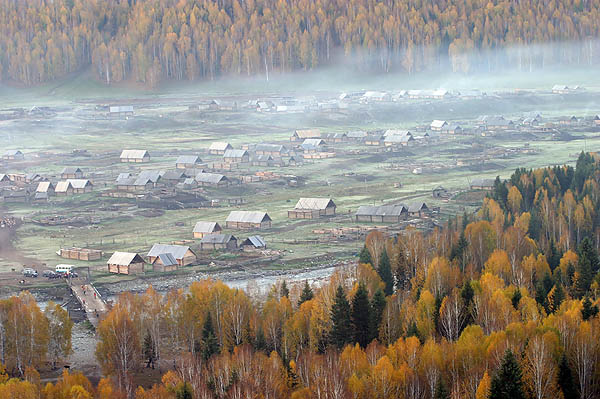
The Meili Snow Mountains (梅里雪山 ), or the Prince Mountains is a range of mountains situated in the northeast region of Diqing county in Yunnan China. It's main peak, Kawa Karpo, is one of the holiest mountains of Tibetan Buddhism. Like Mt Kailash, thousands of pilgrims would undergo a kora (circumambulation) round the mountain. While "only" 6740m, Kawa Karpo has not been ascended.
 |  |
Flanking Kawa Karpo on both sides, there are 12 other snow capped peaks. Every morning, when the sky is clear, the rising sun's rays will fall onto these peaks, bringing the mountains on fire. The prime location to view this spectacular phenomena is a village/town of FeiLaiSi. Transport can be arranged in the town of Deqin, and guesthouses are plenty in FeiLaiSi. It is said that clear days are a rarity here, so I stayed 2 nights to maximise the chances of viewing. And I got 2 days of clear weather!

And so, I managed to enjoy one of Life's most awesomest experiences, twice. :)
















